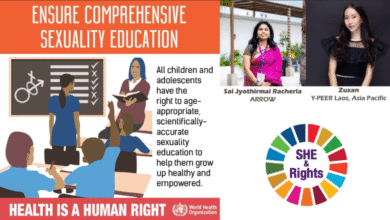How recognition of prior learning can mainstream informal workforce

 In every corner of India’s economy, from workshops and farmlands to logistics hubs and beauty salons, countless individuals have mastered their craft through years of experience. They innovate, train others and sustain livelihoods, but without a certificate to show for it. This invisible divide between what workers can do and what they can prove has long limited educational mobility and recognition.
In every corner of India’s economy, from workshops and farmlands to logistics hubs and beauty salons, countless individuals have mastered their craft through years of experience. They innovate, train others and sustain livelihoods, but without a certificate to show for it. This invisible divide between what workers can do and what they can prove has long limited educational mobility and recognition.
As the country moves toward the vision of Viksit Bharat and operationalises the National Education Policy (NEP) 2020, it becomes imperative to address this gap by putting mechanisms in place that ascribe value to all forms of learning.
Recognition of Prior Learning (RPL) naturally becomes one of the most transformational ways to realise the above goal by giving formal recognition to skills already acquired by the informal workforce.
India’s informal workforce: No badges, but a backbone
The growth story of India rests on the shoulders of its informal workforce. About 82% of the total workforce in India is informally employed, according to the India Employment Report 2024 by the International Labour Organisation.
The Institute for Human Development further observes that this share has largely remained constant despite the growth of formal sectors. Meanwhile, an analysis done in 2024 by MicroSave Consulting shows that around 97% of all micro, small and medium enterprises in India operate informally while employing millions but remaining outside formal structures.
This creates an interesting paradox: those running much of the economic activity in India often have no formal recognition of their competence. Without documentation, their skills are invisible to employers, barring their path to better wages, promotions, or upskilling opportunities. In a job market that is rapidly changing, where employers are relying more and more on verifiable credentials, these workers fall behind-not because they lack skill, but because the system fails to recognise it.
Recognition of prior learning: A Bridge between learning and earning
RPL is precisely aimed at mending this gap. It evaluates and qualifies work experience or non-formal learning-based skills and aligns them to the National Skills Qualification Framework (NSQF). It, therefore, connects the experiential learning system to the formal system of education.
In addition to certification, the actual value of RPL is in the restoration of dignity. Employees receive formal appreciation of their talent which opens the gateway to higher education, new occupational categories, and entrepreneurship. To the industry, it forms a pool of certified employees whose skills have been subjectively tested. And in the case of academia, it offers a chance to infuse applied skills in learning models, a tenet of enhanced industry-academia connections that is intended under National Education Policy (NEP) 2020.
Recent draft guidelines by the UGC also reiterate this approach, placing RPL as a primary mechanism to formalise experiential learning and subsequently link it with the National Credit Framework. Thus, integration essentially ensures that learning, wherever and however that may be, can translate into academic credit and subsequent mobility.
Building stronger industry-academia ties
NEP 2020 envisions a flexible, multidisciplinary education system that is in close tandem with industry requirements. RPL can thus form the bedrock of such an aspiration. When academic institutions, industry associations and sector skill councils collaborate on assessment and certification, the outcome is mutually beneficial. The curricula become more responsive to the world of work, and the industries would get a skilled and certified workforce.
Such partnerships also make learning more inclusive. Experienced professionals, who might never have entered a university, can find recognition for their already acquired skills and join formal academic pathways at appropriate levels. This saves time and resources while ensuring that the education system receives the rich experience of people who have spent years in the field. It is a two-way exchange: academia gains in relevance while industry gains trust in formal education as a credible validation of skill.
The current landscape: Gains and gaps
Under various government initiatives, including the Pradhan Mantri Kaushal Vikas Yojana, the RPL component has expanded significantly. According to data released by the end of 2024 by the Ministry of Skill Development and Entrepreneurship (MSDE), more than 16 million people had been trained or oriented under the PMKVY, with RPL forming a major part of the effort.
However, these gains notwithstanding, a number of gaps still remain. The awareness amongst informal workers remains generally low, especially in rural and semi-urban areas. Many employers do not recognise RPL certificates as equivalent to formal qualifications.
Furthermore, there is often a lack of clear routes of progression-the worker may be certificated but finds no structured pathway into higher education or better employment. Addressing these gaps constitutes the challenge of ensuring that RPL translates from a policy instrument into a real driver of socio-economic mobility.
RPL for women
Policies like RPL that promote experience-based informal learning, help drop-out or out-of-school girls/women to receive education without having to start from the beginning. Together with frameworks like the National Curriculum Framework (NCrF) and the Academic Bank of Credits (ABC), these initiatives help formalize skills for women in unorganised sectors such as beauty and wellness, providing them with recognized credentials, greater employment opportunities, and pathways for career advancement.
International Labour Organisation data suggests, RPL saw a 30% wage increase (NSDC, 2023), while vocational training boosts formal employment chances by 35%, underscoring the need for such frameworks.
RPL as a catalyst for Viksit Bharat
According to the Ministry of Statistics, the contribution of the informal sector to the GDP of India is believed to be as high as 45% as of FY 2022-23. This in itself creates a national imperative for formalization and recognition of informal skills.
RPL has the potential to transform this large segment into a formally recognised, future-ready workforce. A report by Deloitte in 2024 says that skill demand in India is rapidly shifting toward digital, green, and high-technology domains. However, millions of workers already possess complementary competencies in logistics, manufacturing, and services.
In the first case, they can be upgraded with minimum intervention as long as their present competencies can be confirmed to be valid. Recognition, consequently, is expected to take the role of the initial step to reskilling.
The Economic Times job creation data in 2024-25 further indicates that employment in the non-agriculture unincorporated sector of India expanded by approximately 10% in the last one year.
The challenge now is to see that such growth is further translated into productivity and social security. RPL, by connecting experience with opportunity, can make that transition smoother and more inclusive.
The road ahead
India needs to deepen collaboration among government bodies, industry partners, and educational institutions if RPL is to become a cornerstone of inclusive growth. The assessments should be consistent, transparent and digitally verifiable.
For better visibility and awareness, public interest campaigns, especially in regional languages can help reach millions who are unaware that their skills hold formal value. Moreover, integrating RPL certificates into national job portals and higher education admissions can make the recognition directly translatable into opportunity.
The informal economy holds the keys to India’s next phase of development towards a Viksit and Atmanirbhar Bharat. By recognising and credentialing the abilities of its workers, RPL can make sure that every contribution, irrespective of its origin, finds its due place in the growth story of the nation. In doing so, it transforms experience into empowerment and learning into lasting opportunity.




